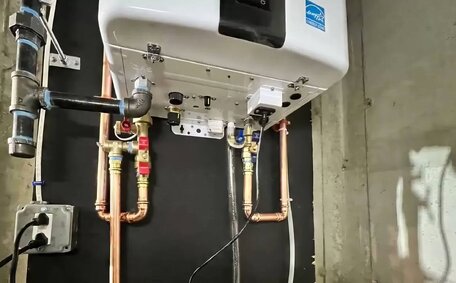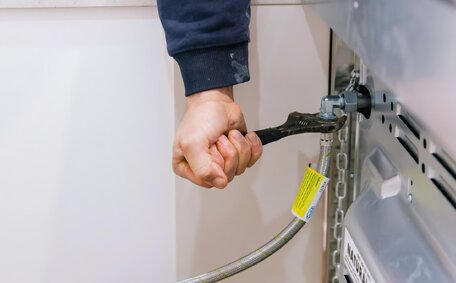Introduction to Drain Care
For Minchinbury homeowners, understanding proper maintenance of garbage disposal systems and drains is essential. Allowing the wrong items to go down drain can lead to nasty clogs, damage, and even public health and environmental issues. At Minchinbury Plumbing, we want to help residents keep their plumbing running smoothly for years to come.
In this article, we’ll discuss how to correctly dispose of them and other common household items that should never go down drains or toilets. We’ll explain what to put and what not to put down the pipes to avoid problems over time. We’ll also give tips for the proper disposal methods residents can use instead.
Understanding what should and shouldn’t enter your drains can prevent expensive plumbing crises. Maintaining clear pipes and a functional septic system also helps safeguard our waterways from contamination. Continue reading to discover what is safe to put down your drain and what to steer clear of.
Food Items That Cause Clogs
Many common food items that you should never put down the drain can cause nasty clogs. Avoid putting the following kitchen waste down the drain to maintain clear pipes:
- Coffee grounds - These compact particles easily get trapped, creating stubborn blockages.
- Egg shells - Shells break into jagged fragments that snag on joints to attract other debris.
- Pasta rice - Starch grains, like the ones pasta rice can release, absorb liquid and congeal into blockages that vehemently cling to pipe walls.
- Fats oils and grease - These thick liquids solidify into waxy substances that build up in drains and gradually narrow the openings.
- Fruits and vegetables - Food waste rots into a fibrous slime, ensnaring other solids to form robust obstructions.
Rather than flushing these items, dispose of kitchen waste in the bin or through municipal garbage services. This practice prevents pipe build-up that leads to significant drain emergencies.
Oils and Grease
Never dispose of oils and grease in your kitchen sink or garbage disposal. Though liquid when hot, these thick substances cool to solidify into a waxy gunk, which you should never put down the pipes as they can cause damage by lodging inside. Grease clings to the inside of pipes and can compromise them, leading to blockages down sink. Over time, these substances can accumulate, obstructing water flow and clogging drains.
Disposing of oils down drains also risks contamination of nearby creeks and rivers.
When possible, try to dispose of used oils grease in an empty container, then throw them in your regular curbside rubbish bin.
For slow or grease-blocked drains, contact Minchinbury Plumbing for assistance. We have powerful enzymatic drain cleaners and hydrojetting equipment to clear the toughest fat-related clogs. We’ll also make sure to inspect your plumbing system and advise on the installation of proper grease traps if required.
Chemicals and Cleaners
Never dispose of highly corrosive household cleaners and chemicals down your drains. Pouring bleach and similar substances down drains can cause extreme causticity. Such substances can damage your pipes, react with various plumbing materials, and destroy beneficial bacteria in septic systems.
Careless disposal of chemicals risks clogging pipes and introducing toxins into our waterways. This can also threaten local wildlife and environments - something we strive to protect here in Minchinbury.
Instead, check the label for safe disposal instructions or throw them out according to Minchinbury Council’s hazardous waste guidelines. Some facilities allow residents to drop off substances that can cause clogs and require special handling, such as unwanted household chemicals. Neutralise chemicals with great care before safely disposing of them, avoiding drain disposal.
If a spilled cleaner or chemical accidentally went down a drain, call our team immediately! We can assess pipe damage and take action before corrosive substances spread further through plumbing systems or out into the environment.
Personal Hygiene Products
Personal hygiene items such as wet wipes, even if labelled flushable, can cause significant blockages in sewer systems.
Although labelled ‘flushable’, wet wipes don’t break down like toilet paper. Items can get stuck on joints or in pumps leading to serious blockages. And those containing plastic and synthetics pose environmental risks, which can clog your plumbing and eventually make their way to oceans.
Cotton buds and dental floss can tangle in pumps and treatment equipment, leading to expensive maintenance. Periodic cleanings are essential as over time, neglecting these can lead to costly damage. Sanitary products, in particular, swell up and can congeal into stubborn clumps, finding their way into pipes when flushed.
So remember, the golden rule is to always dispose of these items in the bin, not down toilet systems. To ensure proper management, securely wrap and place them beneath other rubbish in the bin, if necessary. This ensures waste is disposed of correctly, preventing it from ending up in unsuitable places like pipes and waterways.
For a clogged drain from items like wet wipes, one of the common causes of drain issues, the Minchinbury Plumbing team can help. We’ll clear the obstruction and inspect your plumbing to prevent future issues. Contact us today if you have any concerns.
Medications
Flushing medications down the toilet has concerning health impacts on the water supply and environmental ramifications. Drugs and materials which shouldn’t be discarded thoughtlessly are most likely to influence water supplies and affect aquatic life. Traces also end up in drinking water sources.
Minchinbury residents should use safer disposal methods for items like paper towels that must not enter the drain. Many local pharmacies, endorsed by your local council, run take-back programmes preventing the need to flush down any unused or expired medicines. Minchinbury Council also holds periodic household chemical cleanout days accepting medications.
If no take-back programmes are conveniently available, we recommend mixing medications with an unpalatable substance like dirt or cat litter. This method discourages consumption if retrieved from the trash. Seal them in an impermeable container before putting in your regular household waste bin.
At Minchinbury Plumbing, we emphasise that there are things that should never endanger your plumbing health or local environments. So please, there are things that should never be flushed, like medications. Instead, use take-back services or securely send them to landfill via your curbside garbage collection.
Alternative Disposal Methods
Instead of risking drain damage with items like leftover paint, Minchinbury offers safer disposal methods. Here is a quick guide to alternative ways to get rid of things that should not end up in drains:
- Food scraps and fats oils grease - Place into compost bin or solidify and put in your regular garbage bin
- Fats, oils and grease - Allow to solidify in a container, then put in your garbage
- Chemicals and cleaners - Check label for disposal instructions or contact Minchinbury’s hazardous waste department
- Personal hygiene products - Wrap securely and dispose of in your regular rubbish
- Medications - Utilise pharmacy take-back programmes or mix with dirt/cat litter before trashing
For clarity on what can or can’t be put down drains, Minchinbury residents can reach out to the Council’s Waste Hotline on 1300 349 338. The hotline can guide you towards proper local services and facilities.
Implementing alternative disposal practises helps avoid plumbing emergencies while also protecting Minchinbury’s wastewater infrastructure and environments. If you are already dealing with blocked drains or damaged pipes, our team at Minchinbury Plumbing has all the tools and know-how to get them cleared and flowing freely again.
Signs of Clogged Drains
Stay vigilant for these unmistakable signs of drain clogs:
- Slow draining - Water backs up and drains slowly, taking several minutes to clear from sinks or tubs
- Gurgling sounds - Loud gurgles from air bubbles mean venting problems often tied to blockages
- Unpleasant odours - Bad smells emanating from sewer gases escaping clogs and lingering inside your bathrooms
- Overflowing drains - Water pools around plumbing fixtures unable to drain quickly enough
- Stains - Bacteria and residue left by drainwater leaking from clogged pipes
If you notice any of these issues, your drains likely have obstructive buildup needing clearance. Some potential causes covered earlier include fats, coffee grounds, and wipes. Catching problems early prevents expensive damage and Spotting these issues warrants immediate contact with Minchinbury Plumbing.
Preventing Future Clogs
Here are some tips to help prevent future drain clogs in your Minchinbury home:
- Use drain strainers in sinks to catch food scraps and debris before they go down your pipes
- Avoid letting fats, oils, and grease near your sink - let them solidify and dispose of them in the trash
- Only flush toilet paper down your toilet - place other items like wet wipes securely in the trash
- Regularly pour a pot of hot water mixed with baking soda and vinegar down the drain to maintain clear pipes and facilitate active maintenance.
- Consider safe, biodegradable enzyme drain cleaners to break up organic buildup
- Snaking your drains preventatively every year removes obstructions before they turn into full blockages
- Avoid using chemical drain cleaners often, as they can corrode your pipes
- Install hair catchers in your shower drains to trap loose strands before they accumulate
- Check under sinks for small leaks - left unaddressed, leaks deposit minerals potentially causing drain constriction
- Upgrade old piping to prevent root intrusion or cracks leading to packing of debris
Proactive maintenance ensures your home’s plumbing remains protected long-term. If you’re dealing with clogs or drain repairs, contact Minchinbury Plumbing, who are equipped with advanced tools such as CCTV pipe inspection and hydrojetting, to address the issue.
When to Call a Professional
If chronic drain blockages persist despite all preventative efforts, enlist a professional plumber.
The team at Minchinbury Plumbing has seen it all when it comes to clogged and damaged drains. If over-the-counter remedies haven’t helped, we have industrial-strength equipment to clear even the toughest obstructions.
Our general plumbing services are dedicated to preventing unsuitable items from going down the drain:
- Servicing of your disposal unit with hydrojet drain cleaning
- CCTV drain inspections
- Pipe repair and replacement
- Removal of tree roots and hard buildup
- Installation of backflow prevention devices
Contact our 24/7 emergency plumbing service on 1300 349 338 for severe pipe corrosion, leaks, sewer gas smells, overflows, or public health concerns.
Act quickly before problems escalate and lead to substantial property damage. As your local drain specialists, Minchinbury Plumbing is here to help keep your home’s plumbing running safely and smoothly.






